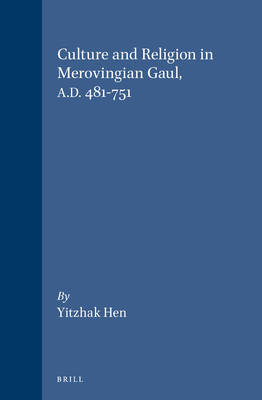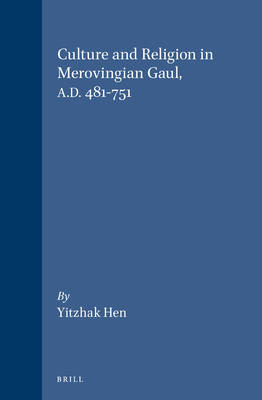
- Afhalen na 1 uur in een winkel met voorraad
- Gratis thuislevering in België vanaf € 30
- Ruim aanbod met 7 miljoen producten
- Afhalen na 1 uur in een winkel met voorraad
- Gratis thuislevering in België vanaf € 30
- Ruim aanbod met 7 miljoen producten
Zoeken
Omschrijving
Although often depicted as a barbaric and uncivilised society, in the full pejorative meaning of these words, Merovingian Gaul was clearly a Christian society and a direct continuation of the Roman civilisation in terms of social standards, morals and culture.
Using insights provided by social history, archaeology, palaeography and anthropology, this book studies the problem of Christianisation in early Medieval Gaul from a cultural point of view. While exploiting a huge range of primary and secondary material, Dr. Hen does not confine himself to a functional analysis of various cultural and religious activities in Merovingian Gaul, but goes on to assess the consequences and implications of such activities for the people themselves, and for the subsequent developments in the Carolingian period.
Using insights provided by social history, archaeology, palaeography and anthropology, this book studies the problem of Christianisation in early Medieval Gaul from a cultural point of view. While exploiting a huge range of primary and secondary material, Dr. Hen does not confine himself to a functional analysis of various cultural and religious activities in Merovingian Gaul, but goes on to assess the consequences and implications of such activities for the people themselves, and for the subsequent developments in the Carolingian period.
Specificaties
Betrokkenen
- Auteur(s):
- Uitgeverij:
Inhoud
- Aantal bladzijden:
- 324
- Taal:
- Engels
- Reeks:
- Reeksnummer:
- nr. 1
Eigenschappen
- Productcode (EAN):
- 9789004103474
- Verschijningsdatum:
- 1/07/1995
- Uitvoering:
- Hardcover
- Formaat:
- Genaaid
- Afmetingen:
- 167 mm x 245 mm
- Gewicht:
- 716 g

Alleen bij Standaard Boekhandel
+ 285 punten op je klantenkaart van Standaard Boekhandel
Beoordelingen
We publiceren alleen reviews die voldoen aan de voorwaarden voor reviews. Bekijk onze voorwaarden voor reviews.











